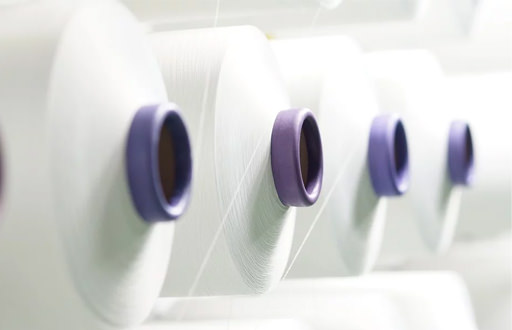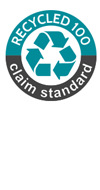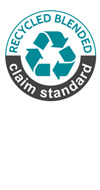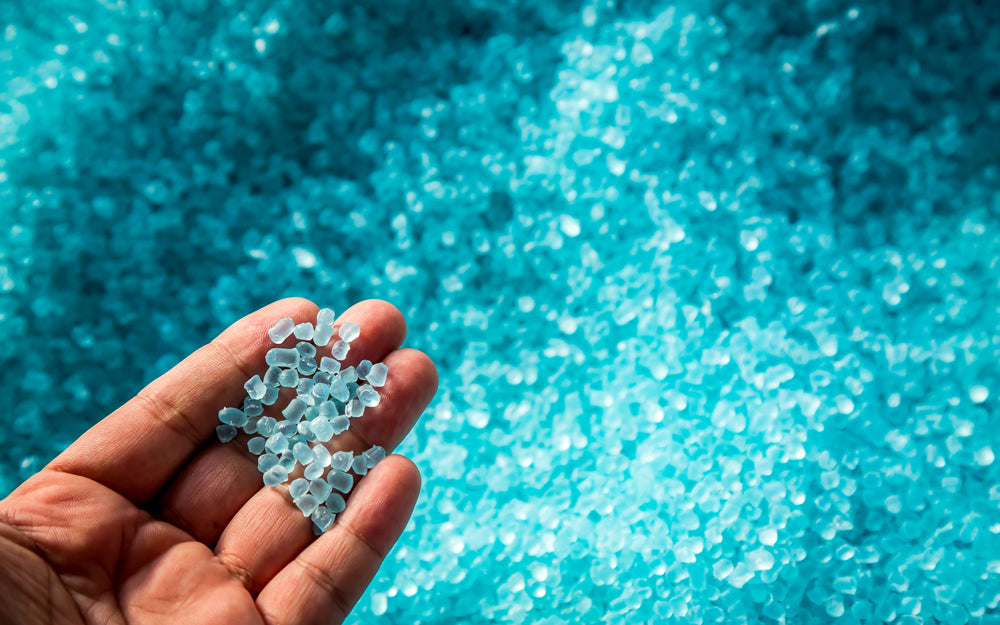All companies in the Outdoor sector, and beyond, are involved in the production of clothing using recycled polyester. We all hear about plastic free but despite this it seems that "in the last 12 years industries have produced more plastic than in the entire history of humanity." GREENPEACE data.
We must understand that recycling is MANDATORY and buying consciously is equally IMPORTANT. And this is why the companies that are proposed by BF Mountain SHOP must respect certain parameters. If they do not have specific characteristics, even if "very cool", they may no longer be present in the store.
We must all get involved because to date only 9% of recycled plastic finds new life after recycling. And only on the labels of the garments we purchase can we verify whether it was created with rPET.
What is recycled PET?
Recycled PET, rPET or recycled polyester is a material obtained from the recycling of waste materials. It comes mostly from the recycling of PET bottles and, to a lesser extent, from industrial polyester or clothing waste.
Given the tons and tons of PET waste that exists today, recycling this plastic is vital for the planet .
rPET is used both for the manufacturing of packaging and for the creation of clothing . After a recycling process - which does not involve the extraction of oil - the yarns from which recycled polyester is obtained are produced and which are then used to weave ecological garments.
Everything you need to know about recycled polyester:
- It is very resistant. Both at high temperatures and wear.
- It is flexible and waterproof.
- It is the most recycled plastic in the world.
- Contributes to the reduction of plastic packaging.
- Greenpeace - among other organizations - is fighting for PET recycling to be subsidized.
Advantages of recycled PET
Recycled PET has many advantages regarding environmental protection. Here are some of its main virtues:
- Its manufacture does not require the extraction of new oil.
- It reduces the textile sector's heavy dependence on oil as a raw material, as well as its demand.
- It generates 75% fewer CO2 emissions and requires less energy than virgin polyester.
- It has a much smaller environmental impact.
- Reduces the amount of waste. rPET prevents plastic from ending up in landfills and therefore helps reduce toxic emissions in incineration plants.
- Helps stimulate new flows of recycled materials.

How does recycled polyester differ from virgin polyester?
On a practical level there is no difference between traditional and recycled polyester. During the recycling process, the fiber is reconstituted at a molecular level and therefore recycled polyester is just as strong, durable and has the same properties as virgin polyester.
Where the two polyesters differ is in their environmental impact. rPET has a much lower environmental impact .
How is recycled polyester obtained?
Process diagram:
PET mechanical recycling process :

There are several methods of PET recycling but the most popular is mechanical recycling.
- Collection : Selective collection of PET bottles from plastic containers is carried out.
- Sorting : Bottles are sorted by color, automatically or manually. Caps and labels are removed.
- Shredding : the packaging is shredded into flakes.
- Washing : cleaning with water and steam and decontamination process.
- Drying : drying of the flakes and subsequent classification.
- Yarn : creation of yarn from hot melted flakes.
- Weaving : Recycled polyester yarn can be combined with other fabrics such as organic cotton or tencel. It is then dyed and woven into fabric.
- Garment : at this point you can make the garment. Here's your recycled polyester garment ready!
What certificates exist for recycled garments?
The main quality mark in the world of recycled clothing is the Global Recycled Standard or GRS. It is an international and voluntary product certificate. In the case of recycled polyester, it guarantees that the fabric of the garment comes from plastic bottles and in the case of recycled cotton that it comes from cutting waste or material leftovers.
It also implies compliance with social and environmental criteria. In the environmental field it determines the absence of certain toxic additives in garments and good wastewater management. In the social field it guarantees respect for dignified working conditions for workers involved in the production process.

Global Recycled Standard
The GRS certifies that the materials used come from recycled materials, among other social and environmental criteria.

Recycled 100 standard claims
This certification certifies that the entire product was made with recycled materials.

Recycled blended claim standard
This certification applies to garments or products with a mixed composition. It certifies that part of the fabric comes from recycled materials.
How to wash recycled polyester items?
Washing recycled polyester items is no different than washing regular polyester items . Each garment has different washing instructions depending on the percentage of polyester and the type of garment.
Here are the general washing instructions to give you an idea. We advise you to always follow the washing instructions on the labels .
How to wash recycled polyester t-shirts?
- Wash the t-shirt inside out to avoid damaging or ruining the print
- Machine wash at 30° with similar colours
- Do not dry clean
- Do not bleach
- Do not tumble dry
- Iron at low temperature (110º) and do not iron directly on the print
How to wash recycled polyester and organic cotton fleece?
- Wash the sweatshirt inside out
- Machine wash at 30º with similar colours
- Do not dry clean
- Do not bleach
- Do not tumble dry or tumble dry on low depending on the garment
- Iron at 110º and do not iron directly on the print
Wash 100% recycled polyester raincoats and jackets:
- Close zips and Velcro fasteners before washing
- Wash the garment inside out
- Machine wash at 30° with similar colours
- Do not dry clean
- Do not iron
- Do not bleach
- Shape the garment while it is still damp and dry flat
- Do not tumble dry
How to wash recycled polyester duvets:
- Close zips and velcro before washing
- Wash the garment inside out
- Machine wash at 30° with similar colours
- Do not dry clean
- Do not iron
- Do not bleach
- They can be tumble dried at low temperature. It is recommended to place one or more tennis balls in the drum to prevent the duvets from getting tangled

